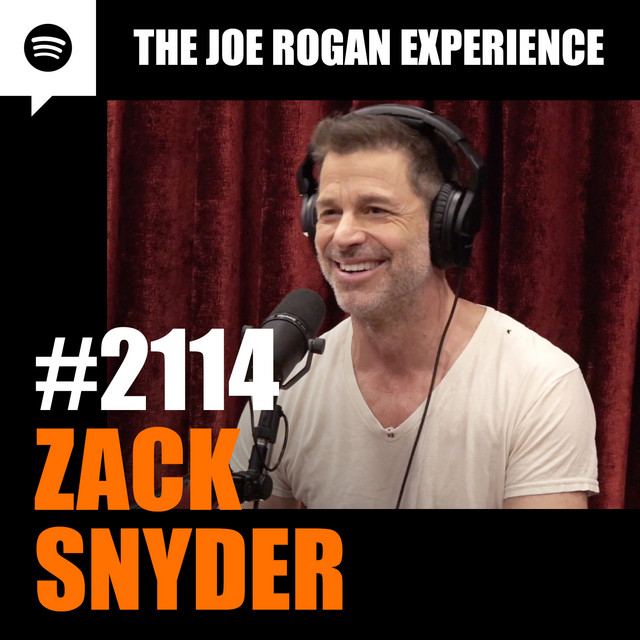6-Mar-24
This podcast dives into the mind of Zack Snyder, a filmmaker known for his epic and visually stunning films like “Justice League”, “300”, and “Army of the Dead”. He discusses his creative process, the challenges of filmmaking, his passion for storytelling, and his latest project, “Rebel Moon”. The conversation touches on provocative topics like the morality of violence in film, the evolution of superhero movies, and the impact of technology on filmmaking.
Major Topics:
-
The Making of “300”
- Snyder’s long-held desire to adapt Frank Miller’s “300”, fueled by his passion for the graphic novel.
- The film’s unconventional production, shot primarily on soundstages with minimal exterior shots, reflecting Snyder’s artistic vision.
- The rigorous physical training regimen Snyder implemented for the actors, transforming them into convincing Spartan warriors.
- The impact of “300” on pop culture, inspiring Spartan tattoos and inspiring the world’s armies to seek out warriors who can deliver a “beautiful death”.
-
The Morality of Violence in Film
- Snyder’s perspective on the role of violence in storytelling, arguing that it can be both beautiful and brutal, reflecting the realities of ancient cultures like Sparta.
- The challenge of depicting historical violence in a way that is both entertaining and thought-provoking.
- The importance of exploring the ethics of violence and its consequences within the context of a story.
- The idea that films can act as a mirror to society, reflecting our own capacity for both good and evil.
-
The Evolution of Superhero Movies
- Snyder’s view on the evolution of superhero movies from traditional, idealized heroes to more complex, flawed characters, exemplified by “Watchmen” and “Dark Knight Returns”.
- The importance of deconstructing genre tropes and challenging audiences’ expectations.
- The exploration of darker themes and the human cost of heroism.
- Snyder’s personal journey with superheroes, from childhood fascination to a deconstructive approach that explores the moral complexities of these iconic characters.
-
The Impact of Technology on Filmmaking
- Snyder’s insights into the evolving nature of filmmaking, from the limitations of traditional film to the possibilities of CGI.
- The challenges of maintaining a visual aesthetic in the face of technological advancements.
- The impact of streaming services like Netflix on the distribution and consumption of movies.
- Snyder’s decision to create both R-rated and PG-13 versions of “Rebel Moon”, reflecting his desire to cater to different audiences and explore the full potential of his vision.
-
The Power of Storytelling
- Snyder’s belief in the power of stories to inspire, provoke, and change the world.
- The importance of creating myths that resonate with our deepest needs and fears.
- The potential of stories to spark action and encourage social change.
- The enduring legacy of stories, transcending time and leaving a lasting impact on our lives.
-
The Importance of Mental Health
- Snyder’s personal experience with loss and grief, highlighting the importance of mental health awareness.
- The impact of his films on the mental health conversation, providing a platform for discussions about suicide and mental well-being.
- The role of fandom in supporting mental health initiatives, exemplified by fans raising millions of dollars for suicide prevention.
- Snyder’s advocacy for mental health awareness, encouraging people to reach out for help and break the stigma surrounding mental health issues.
-
The Allure and Danger of Rigid Belief Systems
- Snyder’s exploration of the seductive nature of belief systems, illustrated by his personal experience with Christian Science and his fascination with the Spartans’ unwavering code.
- The potential for belief systems to become oppressive, suppressing individuality and challenging critical thinking.
- The importance of questioning beliefs and challenging the status quo.
- Snyder’s use of fictional characters to explore the complexities of faith and its impact on human behavior.
-
The Importance of Artistic Vision
- Snyder’s unwavering commitment to his artistic vision, evident in his meticulous storyboarding and his fight for creative control.
- The importance of pursuing personal passion and not compromising artistic integrity.
- The dangers of creative committees and the importance of embracing individuality.
- Snyder’s message to artists: embrace your “weirdness” and use it to create something unique and memorable.
5 Memorable Quotes:
- “300 was a complete labor of love and insane. I was a Frank Miller fan for a long time, right? And I thought I would do Dark Knight Returns, frankly.”
- “If I get a Dark Knight Returns, I’ll be done with comic book movies.”
- “I always say the one thing about movies is that and the thing about Mark that I love was that he went to psychological war with the actors in the best possible way you know like he what he was looking for he would always say I’m gonna put you in your pain cave and you’re gonna find out a lot about yourself when you’re in there.”
- “If you’re going to be the commander of this spaceship, you have to you’re gonna be in situations where you know it’s life or death and especially when there’s no tricking it right there’s no tricking death in this case.”
- “The world’s smartest man is no more dangerous to me than it’s smartest termite. Like it’s like such a cool thing to say like you know like he’s he doesn’t.”
